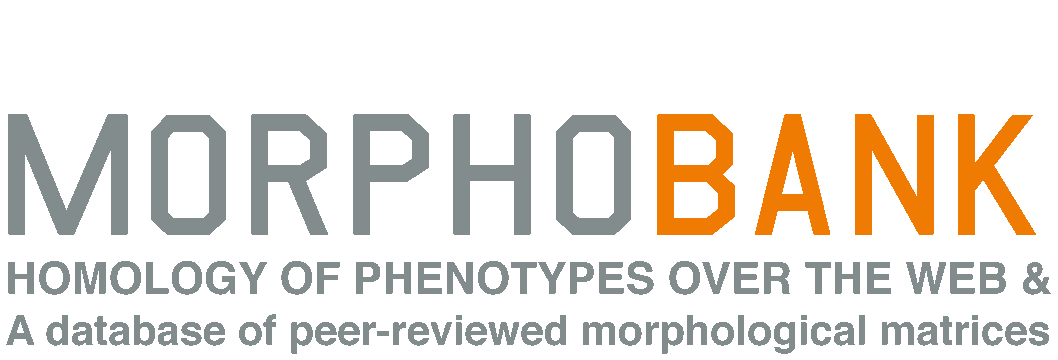Project 3110: J. A. Gray, E. Sherratt, M. N. Hutchinson, M. E. Jones. 2019. Changes in ontogenetic patterns facilitate diversification in skull shape of Australian agamid lizards. BMC Evolutionary Biology. 19 (1):7.
Abstract
Background: Morphological diversity among closely related animals can be the result of differing growth patterns. The Australian radiation of agamid lizards (Amphibolurinae) exhibits great ecological and morphological diversity, which they have achieved on a continent-wide scale, in a relatively short period of time (30 million years). Amphibolurines therefore make an ideal study group for examining ontogenetic allometry. We used two-dimensional landmark-based geometric morphometric methods to characterise the postnatal growth patterns in cranial shape of 18 species of amphibolurine lizards and investigate the associations between cranial morphology, and life habit and phylogeny.Results: For most amphibolurine species, juveniles share a similar cranial phenotype, but by adulthood crania are more disparate in shape and occupy different sub-spaces of the total shape space. To achieve this disparity, crania do not follow a common post-natal growth pattern; there are differences among species in both the direction and magnitude of change in morphospace. We found that these growth patterns among the amphibolurines are significantly associated with ecological life habits. The clade Ctenophorus includes species that undergo small magnitudes of shape change during growth. They have dorsoventrally deep, blunt-snouted skulls (associated with terrestrial lifestyles), and also dorsoventrally flat skulls (associated with saxicolous lifestyles). The sister clade to Ctenophorus, which includes the bearded dragon (Pogona), frill-neck lizard (Chlamydosaurus), and long-nosed dragon (Gowidon), exhibit broad and robust post-orbital regions and differing snout lengths (mainly associated with scansorial lifestyles).
Conclusions: Australian agamids show great variability in the timing of development and divergence of growth trajectories which results in a diversity of adult cranial shapes. Phylogenetic signal in cranial morphology appears to be largely overwritten by signals that reflect life habit. This knowledge about growth patterns and skull shape diversity in agamid lizards will be valuable for placing phylogenetic, functional and ecological studies in a morphological context.
Read the article »
Article DOI: 10.1186/s12862-018-1335-6
Project DOI: 10.7934/P3110, http://dx.doi.org/10.7934/P3110
| This project contains |
|---|
Download Project SDD File |
Currently Viewing:
MorphoBank Project 3110
MorphoBank Project 3110
- Creation Date:
19 February 2018 - Publication Date:
13 March 2019 - Media downloads: 71

Authors' Institutions ![]()
- Natural History Museum, London
- University of Adelaide
- South Australian Museum
Members
| member name | taxa |
specimens |
media |
| Jaimi Gray Project Administrator | 36 | 364 | 361 |
Project has no matrices defined.
Project downloads 
| type | number of downloads | Individual items downloaded (where applicable) |
| Total downloads from project | 254 | |
| Project downloads | 177 | |
| Media downloads | 71 | M476088 (2 downloads); M476098 (1 download); M476119 (1 download); M476120 (1 download); M476128 (1 download); M476140 (1 download); M476174 (2 downloads); M476177 (1 download); M476184 (1 download); M476188 (1 download); M476189 (1 download); M476190 (1 download); M476191 (1 download); M476198 (1 download); M476208 (1 download); M476209 (1 download); M476216 (1 download); M476218 (1 download); M476219 (1 download); M476226 (1 download); M476227 (1 download); M476228 (1 download); M476229 (1 download); M476230 (1 download); M476248 (1 download); M476264 (1 download); M476266 (1 download); M476267 (1 download); M476268 (1 download); M476269 (1 download); M476270 (1 download); M476288 (1 download); M476292 (1 download); M476294 (1 download); M476302 (1 download); M476303 (1 download); M476304 (1 download); M476324 (1 download); M476335 (1 download); M476361 (1 download); M476365 (1 download); M476379 (1 download); M476383 (1 download); M476384 (1 download); M476385 (1 download); M476394 (1 download); M476395 (1 download); M476403 (1 download); M476405 (1 download); M476406 (1 download); M476408 (1 download); M476433 (1 download); M476436 (1 download); M476186 (1 download); M476111 (1 download); M476100 (1 download); M476089 (1 download); M476090 (1 download); M476094 (1 download); M476099 (1 download); M476104 (1 download); M476136 (1 download); M476133 (1 download); M476143 (1 download); M476146 (1 download); M476144 (1 download); M476171 (1 download); M476180 (1 download); M476183 (1 download); |
| Document downloads | 6 | Raw landmarks (3 downloads); Metadata (3 downloads); |

